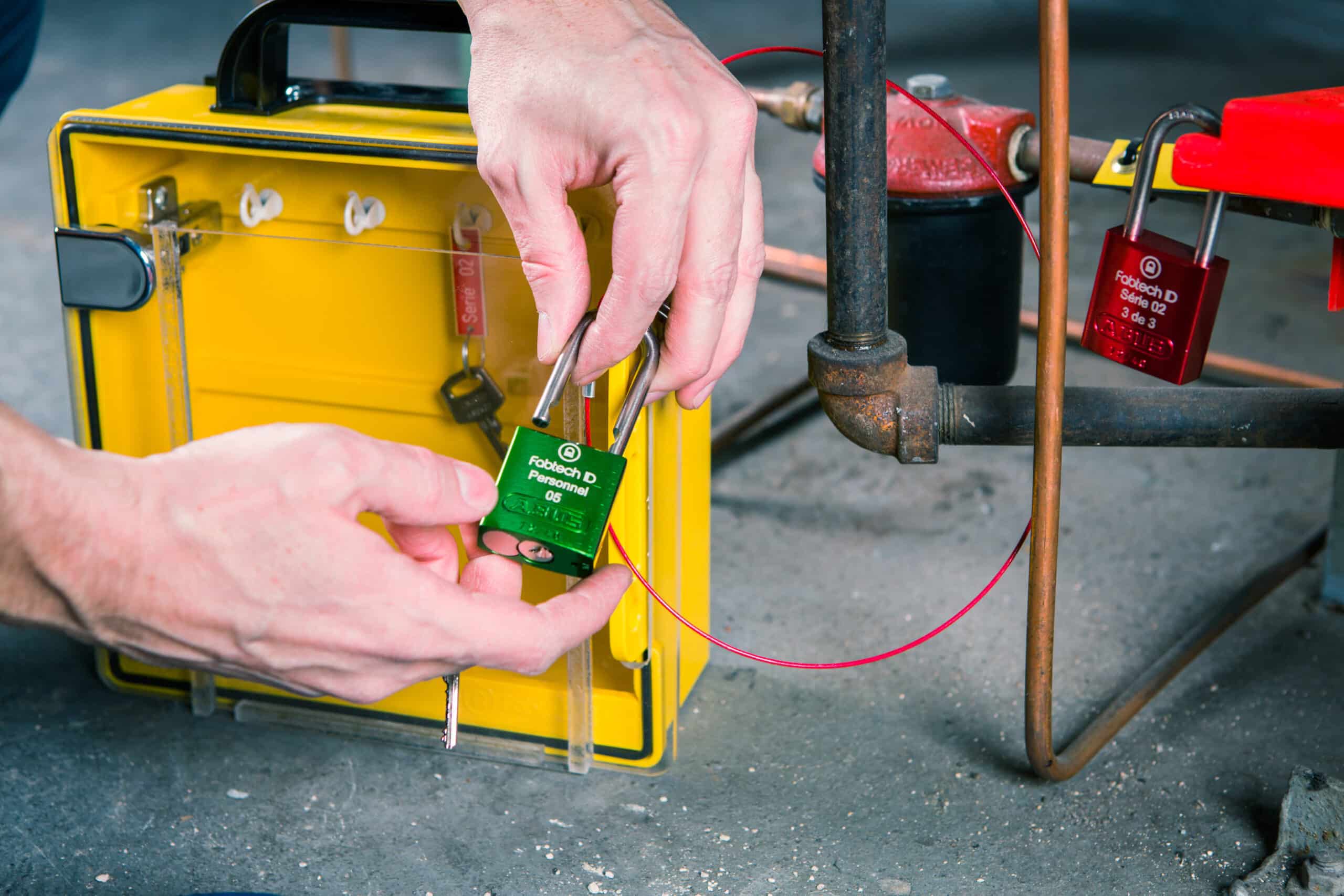LOTO | Different Types of Locks for Different Purposes


LOTO: How to comply with regulatory measures?
7 August 2018
Complying with specific lockout/tagout (LOTO) elements and other energy control methods could be a major challenge and become a real headache for organizations. How can a manager successfully implement a LOTO program and comply when resources and time are lacking? Rest assured, there are ways to manage it.
Let’s begin by understanding the regulatory requirements.
The employer is responsible for the application of energy control methods, including LOTO. It must ensure that the energy source control procedures are developed and applied for each machine or equipment. They must be easily accessible, intelligible and periodically revised.
All LOTO material must be provided, accessible, in sufficient quantity and in good condition. A single-key padlock and tags must be provided to all workers with access to hazardous areas. The name of the person who installs a single-key padlock and tags must clearly be indicated on it or in a register.
All LOTO work must be the subject of written authorization from the employer who has authority over the establishment before undertaking any work in the hazardous area of a machine.
The LOTO procedure must indicate the sequence of stopping or deactivating the machine or equipment, define the actions to block or completely release the stored residual energy (if present) as well as specify the steps to unlock and safely restart the machine or equipment.
If an energy control method other than LOTO is considered, the employer must conduct a risk analysis to demonstrate the equivalent effectiveness of this option.
Each of the workers concerned must proceed to the LOTO with the help of his single-key padlock and tags, well identified in his name.
In the event of the loss of a key, an absent worker or other situation which does not permit the removal of padlocks or the isolation device in an intended manner, a withdrawal procedure must be drawn up and indicate under what conditions an authorization may be granted. Each padlock must be recorded in writing.
The employer must ensure that all workers and persons who have access to the hazardous areas are informed and properly trained in the energy control procedures.
Where subcontractors or self-employed workers carry out work in a dangerous area of a machine, the employer who has authority over the establishment must coordinate and ensure the application of the energy control method.
To help you find out if you are on the right track, here are 10 questions that will help you identify the key elements that a LOTO program must cover to be compliant:
1. Is your lockout/tagout (LOTO) program endorsed and supervised by clearly identified responsible resources?
2. Are your lockout/tagout (LOTO) procedures applied in all circumstances (installation, unblocking, maintenance, repair, etc.)?
3. Are the energy sources and their devices required to isolate them clearly identified for each equipment?
4. Does each employee own and use a personal padlock clearly identified with his name with a unique key?
5. Borrowing padlocks, devices and labels are easily accessible and in sufficient numbers?
6. Do you cover all situations: individual lockout/tagout (LOTO), group, unit, padlock forgetting and shift change?
7. Do you have lockout/tagout (LOTO) procedures for all your equipment and interventions?
8. Are your lockout/tagout (LOTO) records periodically reviewed by resources with the required expertise?
9. Are your employees trained on the application of procedures and any changes to lockout/tagout (LOTO) sheets?
10. Do you make observations and audits of the proper application of lockout/tagout (LOTO) procedures?
It is utopian to think that lockout/tagout procedures are written in a snap of fingers. It may take several hours to write each LOTO procedure. It would take months and years to comply with this requirement. How do we then ensure the safety of workers and have the time to put them in place?
First, to comply NOW, there is a process to follow when the lockout/tagout procedure is non-existent. It must be ensured that the LOTO procedure is developed, approved and applied before performing an intervention in a hazardous area.
After that, it will be necessary to evaluate the relevance of documenting this procedure in the LOTO-management system for future use.
Then, plan the development of the procedures strategically by prioritizing them and planning them according to the maintenance to be done in the short term. This is an opportunity to start the documentation and create the procedure. Little by little, the procedures will be created according to the maintenance schedule.
However, if you find it impossible to add these tasks to your already overloaded teams, it can be advantageous to entrust the task to experts to have the priority files faster. However, you must select those who have the required expertise and who will be able to assist you in managing organizational change to achieve operational efficiencies in the management of LOTO in your organization.
One of the keys to success is the involvement of workers as much as the commitment of management. Remember that the LOTO program is designed for workers, for their safety and not just to comply. They must be involved in the process, be well supervised. The real success lies in the involvement and commitment of all. That’s how you can succeed!